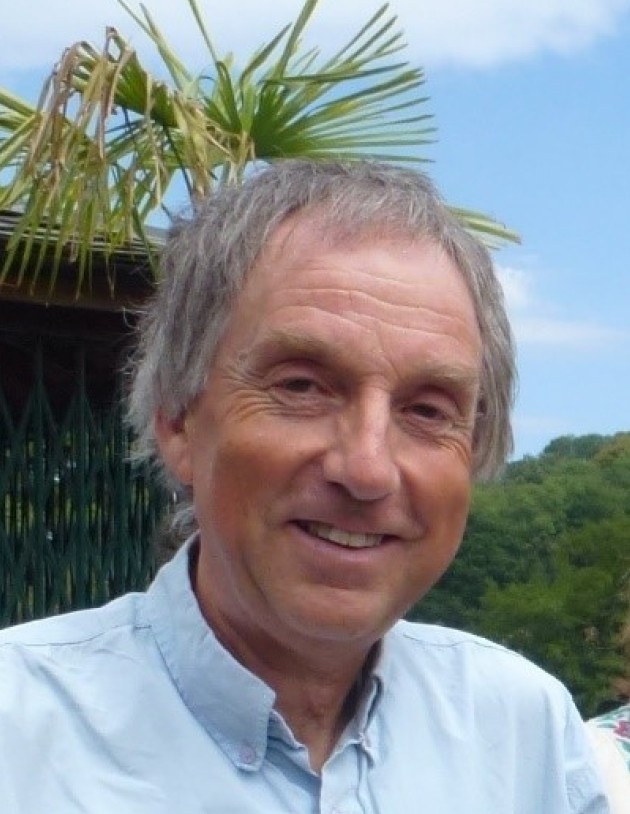
Professor William Powrie FREng will give the ESE Departmental Seminar on 3 December, “Transportation infrastructure earthworks: resilience and sustainability – then, now and in the future“
Join us online on Thursday 3 December by clicking “Livestream” on the seminar page at 12pm.
Problems with the stability of Victorian railway embankment and cutting slopes have become all too apparent in recent years.
Major slips at Botley, Harbury, Edenbridge and elsewhere have received considerable press coverage, not least because they necessitated line closures of several weeks while repairs were carried out. Less well known, but almost as troublesome from an operational point of view, are the cycles of winter swelling and summer shrinkage experienced by plastic clay embankments as a result of seasonal variations in the water demand of vegetation. These disrupt the geometry of the railway track, leading to the imposition of speed restrictions that disrupt the summer timetable almost as much as leaves on the line in autumn.
The presentation will explore these problems in relation to the original method of embankment construction, long before modern soil mechanics principles had been developed and understood; the development of lineside vegetation; fatigue arising from cyclic loading; and the impact of climate change. Developments in preventative and remedial methods such as vegetation management and discrete pile stabilisation will be presented. The presentation will then look forward to current and future projects such as HS2, where there is a need to strike a balance between the robustness and affordability of earthworks. Trying to avoid the problems of the past through brute force engineering may result in earthworks that are costly, not only in terms of money but also in the environmental impacts of transporting high-grade fill potentially many tens of kilometres to site, and installing concrete piles to mitigate cutting base heave or embankment settlement.
 William Powrie is Professor of Geotechnical Engineering at the University of Southampton. His main technical areas of expertise are in geotechnical aspects of transport infrastructure, and sustainable waste and resource management. He was elected Fellow of the Royal Academy of Engineering in recognition of his work in these areas in 2009.
William Powrie is Professor of Geotechnical Engineering at the University of Southampton. His main technical areas of expertise are in geotechnical aspects of transport infrastructure, and sustainable waste and resource management. He was elected Fellow of the Royal Academy of Engineering in recognition of his work in these areas in 2009.
William’s work on geotechnical aspects of transport infrastructure encompasses groundwater control, in-ground construction to reduce environmental impacts in urban and other sensitive areas, understanding and mitigating vegetation and climate change effects, and fundamental soil behaviour.
Major projects on which he has worked include the A55 Conwy Crossing, the Jubilee Line extension stations at Canary Wharf and Canada Water, and HS1. He is currently working with HS2 on geotechnical and earthworks aspects. He is co-author of Construction Industry Research and Information (CIRIA) reports C750 Groundwater control – design and practice, 2nd edition (2016) and C760 Guidance on embedded retaining wall design (2017). Both of these incorporate results of his research in these areas.
He was Principal Investigator for Rail Research UK (2003-2010), a Universities-based centre for Rail Systems Research, and now leads an EPSRC Programme Grant, Track to the Future, aiming to provide the science needed to underpin a radical overhaul in techniques for railway track design, construction and maintenance. He is Convenor of the UK Collaboratorium for Research on Infrastructure and Cities (UKCRIC), and leads the UK Rail Research and Innovation Network Centre of Excellence in Infrastructure.
He is a former Associate Editor of the Canadian Geotechnical Journal, a former Honorary Editor of the Institution of Civil Engineers journal Geotechnical Engineering, and has been Geotechnical Consultant to groundwater specialists WJ Group since 1987.
William’s work in waste and resource management focuses on landfill engineering, and on the development of a sound scientific basis for policy and practice. He led a major EPSRC-funded programme of fundamental research, Science and Strategies for the Management of Residual Wastes, with the aim of enabling and encouraging landfill operation so as to accelerate biodegradation and stabilization of the waste. He was a co-author of the Institute of Wastes Management report on the Role and operation of the flushing bioreactor.
He worked on the design and engineering risk assessment of the low level radioactive waste repositories at Drigg; and was founding Honorary Editor of the ICE journal Waste and Resource Management; a member of the Scientific Committee of the International Waste Working Group; and chair of the Technologies Advisory Committee for Defra’s £30M programme of research and demonstrator projects for new technologies for the treatment of biodegradable waste. He is the author of the widely respected textbook, Soil mechanics: concepts and applications.